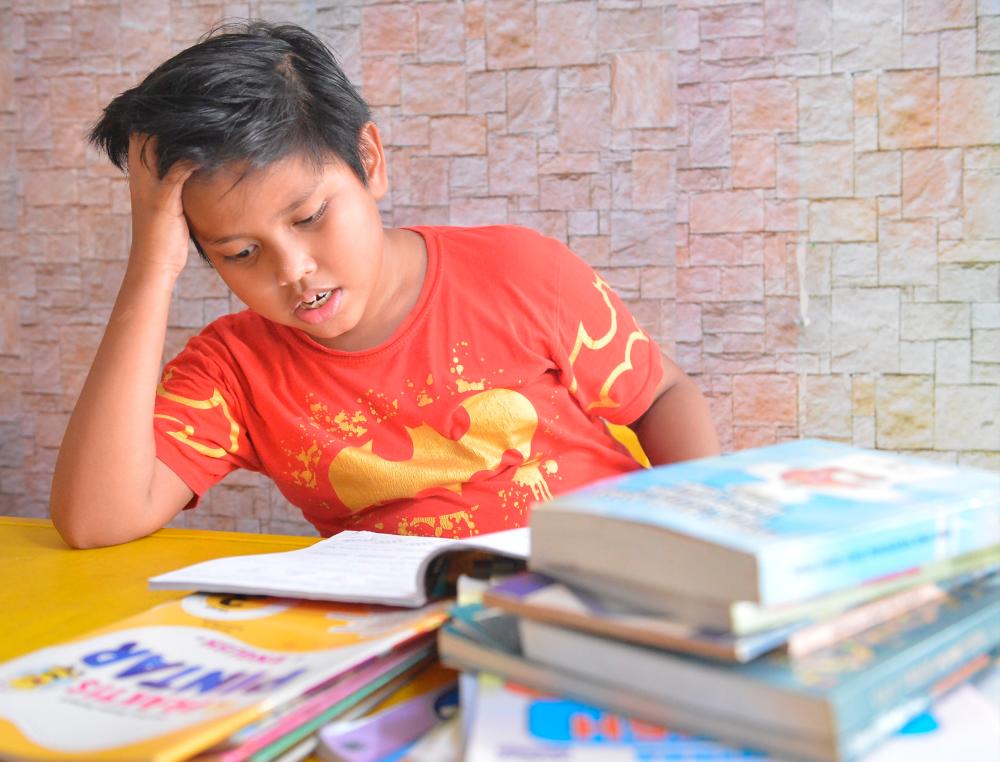PETALING JAYA: The huge amount of homework required from schoolchildren aged between seven and 17 needs to be replaced with tailored assignments that spark genuine interest and engagement, said National Association of Private Educational Institutions secretary-general Dr Teh Choon Jin.
He said striking a balance between classroom lessons and homework is essential to ensure students benefit from knowledge without succumbing to an overwhelming workload.
“By correcting the role of homework, the education system can better cater to the principles of holistic education while upholding the integrity of assessment practices.”
Teh said in a 2021 survey conducted by the Education Ministry, 75% of teachers expressed belief in the essential role of homework, but only 54% felt it was effectively used.
He added that the connection between standardised testing and homework is evident, with a 50% rise in assigned tasks reported in the months preceding significant assessments, such as the Sijil Pelajaran Malaysia examination.
He said the transition from conventional assessments to the School-Based Assessment model emphasises a holistic approach that incorporates academic and non-academic components.
“While assessments remain crucial to evaluate learning objectives, the growth of homework tasks raises concerns about its effectiveness in promoting a well-rounded education.”
Teh said there is a pressing need to re-evaluate the role of homework in the education system and shift the focus from sheer volume to assignments that are meaningful and able to reinforce key concepts.
He said the stress induced by the demands of standardised tests often compel educators to assign more homework in a well-intentioned effort to improve student preparedness.
“Unfortunately, this approach frequently backfires and contributes to heightened stress levels and burnout.”
Teh also said educators can strike a balance between preparing students for standardised tests and preventing an overwhelming homework burden through a more strategic and diversified approach to test preparation.
He said rather than relying solely on traditional homework assignments, teachers could incorporate a range of assessments, including project-based evaluations, classroom discussions and practical applications of knowledge.
“Implementing quizzes in the classroom to encourage student discussions can effectively prepare them for standardised tests while alleviating excessive homework.”
Teh said embracing collaborative learning and peer-to-peer teaching provides alternative avenues to reinforce concepts without exclusive reliance on homework assignments, adding that the approach fosters a more comprehensive understanding of the material and prepares students for the transition to higher education, when a shift towards independent learning, critical thinking and information search skills becomes increasingly prominent.
“Recognising the diverse learning needs of students is essential while tailoring assignments that spark genuine interest and engagement enhances their effectiveness.
“Quality and relevance should outweigh quantity in ensuring that homework serves its intended purpose.”
While stressing that creating a supportive and holistic learning environment requires a multifaceted approach, Teh said open communication among educators, students and parents is essential to address concerns collaboratively, adding that prioritising mental health and well-being in schools involves integrating counselling services into the curriculum.
“Systemic changes at the institutional level are crucial, with schools incorporating mental health education, providing educator training on stress recognition and offering accessible counselling services.
“Professional development opportunities for teachers should emphasise innovative teaching methods, reduce reliance on conventional homework and highlight experiential and hands-on learning, ultimately contributing to a positive and supportive learning environment.”









